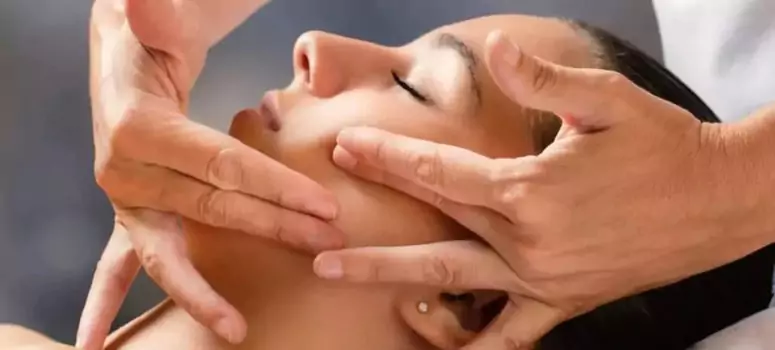If you have a painful or clicking jaw, headaches, teeth grinding, tinnitus or neck pain, it’s time to come and see us at The Alignment Studio. These are all common symptoms of TMJ or jaw dysfunction – a condition affecting up to 60-70% of the population due to injury, dental malocclusion, disease or lifestyle – and we can help.
Highly experienced in tackling TMJ dysfunction, our TMJ physios will diagnose your condition, treat your joints and affected muscles and prescribe exercises to reduce your TMJ pain and get things moving smoothly again.
TMJ is short for temporomandibular joint or, in simpler terms, jaw joint. Our two TMJs allow the jaw to be suspended under the skull and help with eating and speaking. They occur where the hollow in the undersurface of the side skull bone meets a rounded prominence at the top of the jawbone (mandible).
Temporomandibular joint disorder or dysfunction (TMD) occurs when the jaw joint is unable to perform as required due to arthritis, trauma or stress.

Chronic earache? Discomfort in this region is often a sign of jaw dysfunction, due to the TMJ’s positioning. Each temporomandibular joint is located immediately in front of the ear, which explains symptoms such as ear pain, a blocked ear or noises when moving the jaw.
TMJ problems can stem from several contributing factors:
Skilled in assessment and treatment, TMJ physiotherapists take a holistic approach to address the causes of TMJ issues and alleviate associated symptoms.

Assessment and Education
TMJ physios assess jaw function, posture, muscle strength and range of motion. They educate on anatomy and self-management strategies, such as postural corrections, relaxation techniques and lifestyle modifications.

Hands-On Treatment
Your TMJ physio will use manual therapy techniques including soft tissue massage, joint mobilisations and stretching exercises to alleviate pain, improve range of motion and enhance jaw function.

Pain-Relief Techniques
Depending on your needs, TMJ physios may also use shockwave therapy, heat, ice and dry needling to alleviate jaw pain, reduce inflammation and promote tissue healing.

Exercise Programs and Rehab
They will also prescribe exercises and rehabilitation programs to strengthen weak muscles, improve flexibility, correct muscle imbalances and optimise jaw movement patterns.

Trained under one of the leading names in TMJ physiotherapy in Melbourne, our TMJ physios, Maysam Al-Bermani, Nursah Katkak and Ana Coan, will provide a comprehensive assessment, practical advice on correct jaw usage, and effective treatment and rehabilitation.
After taking a detailed history and identifying the root cause of your TMJ symptoms, they will devise a personalised treatment plan to improve joint movement and muscle function through postural correction and hands-on therapy.
Treatment techniques may include mobilisation, massage, gentle stretching, strengthening and dry needling
Yes. An experienced physiotherapist can help with TMJ dysfunction by providing manual therapy, exercises and education to improve jaw mobility and reduce pain.
There are four key stages of TMJ dysfunction:
Early intervention is best, so always seek advice if you’re experiencing TMD symptoms.
A simple jaw-opening exercise may help improve jaw mobility and strengthen the muscles surrounding the TMJ. Place your thumb under your chin and gently press down, opening your mouth against the resistance. Hold this position for a few seconds, then close your mouth slowly. Again, seek the advice of your physio before attempting this exercise.